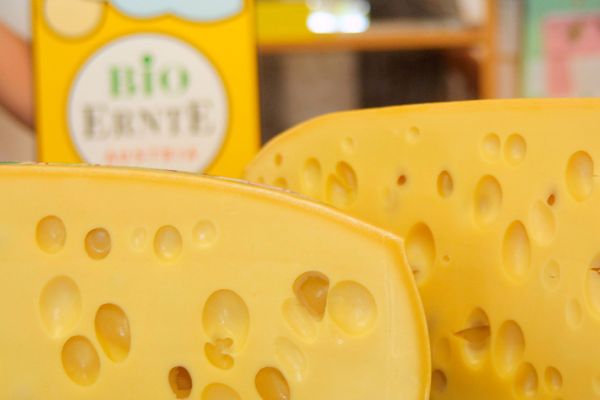What exactly is organic food?

Foods from organic production are more than just products that come from an organic farm. For example, far fewer food additives (E numbers) are permitted than for conventional products. The control system - also for imported organic food - is complex and makes the process transparent from the field to the table.
Labelling of organic food
The packaging shows whether a food is organic. It carries the green leaf logo featuring stars in the form of a leaf, the EU organic logo. This logo is mandatory for all pre-packaged organic products.
Whenever the EU organic logo is used on a product, the code number of the control body and the indication of the place of farming shall be placed in the same visual field as the EU organic logo, i.e. AT-BIO-402 Österreichische Landwirtschaft. The code could also be different and the indication of origin could be "EU Agriculture”.
In addition to the EU organic logo, there are also labels like, for example, the AMA organic seal, association labels of Bio Austria and Demeter, organic labels of the trade marks.
The AMA organic seal is based on authorised agricultural quality systems that go beyond the law. This means that they also go beyond the EU Organic Regulation. At least 50 percent of the raw materials of AMA organic seal products must originate from these authorised quality systems; for mono-products like milk, meat, fruit and vegetables or eggs, the share is 100 percent.
Regulation on the production of organic food
The EU Organic Regulation no 848/18 regulates not only what happens in the barn or pond and in the field, but also the production process of organic food. It must be ensured that there is no mixing of organic and conventional ingredients. This is why the processing company,i.e. the bakery, dairy or slaughterhouse, must operate separate systems from delivery to sale. It is best if the processing plant uses exclusively organic ingredients. The end product must contain 100 percent organically produced ingredients, i.e. the flour, eggs, curd cheese and sugar in the organic curd cheese golache must have been produced in an organic way and certified accordingly. There are only a few exceptions of up to 5 percent conventional ingredients in organic products; these are listed in the annex to the "old" Organic Regulation 889/09 and this annex is still valid until 2024.
However, also permitted food additives ("E numbers") and processing aids, such as nitrogen and activated charcoal, are specified in the Organic Regulation.
Competences for organic food inspection and its implementation (from field to shelf)
Every step of organic production is controlled. The organic inspector from the state-authorised organic control body checks the field and the barn, the wheat harvested as well as the milk and the meat, the bread and the sausages. Everything must comply with the rules of the Organic Regulation because: If the label on the packaging says ORGANIC, the product inside must be ORGANIC as well. This also applies to organic products from abroad.
The body in charge is the food authority of the respective Federal Province. The superior authority is the Federal Ministry of Social Affairs, Health, Care and Consumer Protection. The Ministry of Agriculture is mainly responsible for the promotion of organic production.
Organic share of food sales
Agrarmarkt Austria Marketing GmbH regularly analyses these shares by product group.
Motivation analysis to buy organic - Who buys more organic and why?
Organic food is increasingly being bought by all population groups, especially by young people and by households with higher incomes.
What in particular arouses interest in organic products?
- Conscious and healthy nutrition
- Positive experience with organic products
- Wider range of products in shops
- Promotions and discounts
- Personal attitude towards sustainability
- Animal welfare and environmental protection
- Private contacts with organic producers
Organic food can be found on almost every supermarket shelf and is also an essential part of the range on farmers' markets. It will now depend on consumers in particular how the trend towards organic food develops.
TippTipp
General information on organic production is also available under Organic Farming.